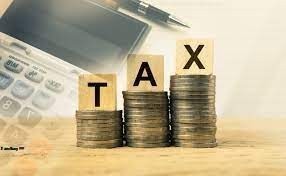Kenyan businesses could soon be allowed to use their pending Value Added Tax (VAT) refunds to pay off other tax obligations if a proposal presented to President William Ruto is approved. The move is aimed at easing cash flow challenges for companies, especially exporters, who have long complained about delays in VAT refund payments.
The proposal came during a Presidential roundtable meeting with the private sector on Wednesday, attended by Kenya Private Sector Alliance (Kepsa) officials and top government representatives. Kepsa Chief Executive Officer Carole Kariuki told President Ruto that the current VAT refund system is slowing business growth, with some companies waiting months for payments.
Under the previous Tax Procedures Act, the Kenya Revenue Authority (KRA) was required to verify and pay VAT refunds within 90 days. However, the Finance Act 2025 extended that period to 120 days. Businesses say the change is hurting their cash flow, as delayed refunds tie up funds they need for operations and investments.
“That makes it a bit harder for businesses. Maybe we need a different resolution here to see if we can return it to 90 days, but also look at offset across different tax classes,” Ms Kariuki told the President. She said Kepsa has been in discussions with KRA, which has shown willingness to review the system.
Businesses are also pushing for the government’s monthly allocation for VAT refunds to be doubled from Sh2.5 billion to Sh5 billion. In addition, they want the refund cap for individual companies raised from the current Sh30 million to allow big exporters with larger claims to receive their full dues without delays.
“We have big exporters, some of whom have bigger claims of more than Sh30 million a month,” Ms Kariuki said, noting that delays in VAT refunds directly affect competitiveness in global markets.
A progress report presented to the President during the meeting revealed that outstanding VAT refunds currently stand at about Sh15 billion. It recommended increasing the monthly allocation for VAT refunds from Sh2.5 billion to Sh4 billion and creating a revolving fund or issuing VAT refund bonds that could be traded on the Nairobi Securities Exchange (NSE) to give businesses quicker access to their money.
President Ruto said his administration is open to considering the use of VAT refunds to offset other tax liabilities such as corporate income tax or excise duty, a measure that could help businesses manage their obligations more effectively.
“That is something I am willing to consider because I think it helps the industry,” he told the meeting.
On the issue of the 120-day verification period, the President said he would engage the Ministries of Investments, Trade and Industry, and the National Treasury to understand the reason for the extension and whether the previous 90-day limit could be reinstated.
He also acknowledged concerns about the Sh30 million cap per business, saying larger companies with bigger claims could be granted exemptions. “I hear you say let us increase allocation from Sh2.5 billion every month to Sh5 billion. That is another homework we will take back and look at what it means to us in terms of our other obligations,” Ruto said.
The meeting is part of ongoing efforts to improve relations between the government and the business community, which has been calling for tax reforms, faster refunds, and better support for exporters. If implemented, the proposed changes could ease financial strain on Kenyan companies and help stimulate economic growth by freeing up capital tied in unpaid VAT claims.
